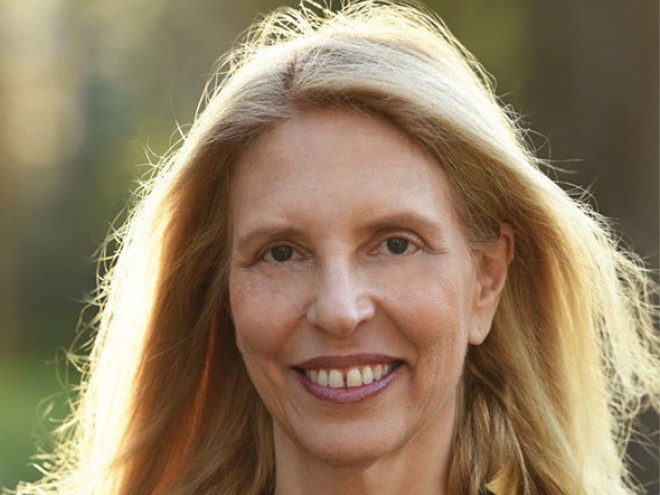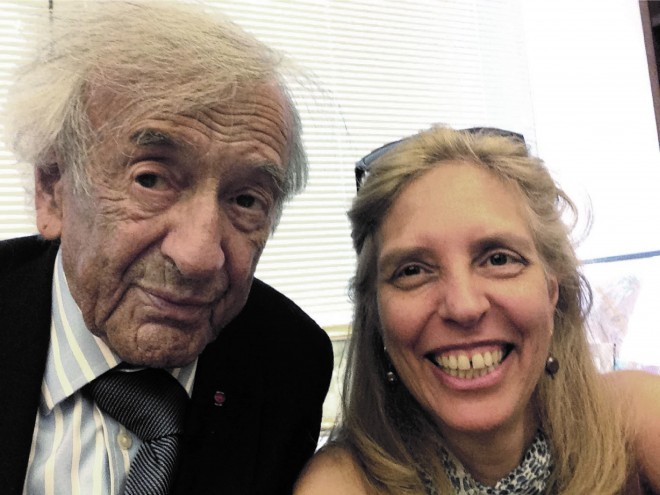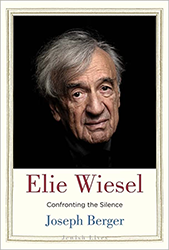Since Elie Wiesel’s passing in 2016, the literary world has produced a number of beautiful testimonials to his extraordinary life. Most notable among these endeavours is Witness: Lessons from Elie Wiesel’s Classroom by Ariel Burger, which chronicles how Burger went from former student to Wiesel’s teaching assistant, and the lessons he learned along the way. In recent months, two additional projects have sought to further these conversations, preserving Wiesel’s memory through the impact he had on those who knew him.
The Art of Inventing Hope by Howard Reich is a beautiful reflection on Wiesel’s wisdom, told through the eyes of one of Chicago’s leading arts critics. Reich was raised in a home where the Holocaust was palpable. His parents were survivors and the Shoah’spresence loomed over them, raising questions for Reich that no one in his household was equipped to answer. Eventually, Reich was chosen to interview Wiesel who was chosen for the Chicago Tribune’s Literary Award, and this encounter kicked off a years-long friendship.
Reading The Art of Inventing Hope, one is struck by the hunger in Reich’s questioning. Wiesel, who appears with his characteristic humility and openness, engages with each of Reich’s queries with compassion and gravity. Though this is not the first time he has been asked questions concerning hope, faith, witnessings, and forgiveness, Wiesel’s answers appear spontaneous rather than rehearsed. It is as if they are colored by the wisdom of a lifetime of collective experience, but they are thought about anew each time he encounters a question.
One of the things that makes Reich’s work so powerful is that he couples his interviews with Wiesel with other important portraits from his own life. His parents loom large and it feels as though their story matters as much as Wiesel’s own. Likewise, Reich writes deeply about his own struggles. Whether it’s the place of Israel in a post-Holocaust world or whether, as a music critic, he is allowed to enjoy Nazi era composers. Wiesel becomes a lifeline for Reich, an expert who can help him refine these universal questions. Reich knows his readers have similar struggles and the book reads like he is inviting them into the room to engage in conversation with him and Wiesel.
On the surface, Reich’s bookis almost the opposite of Moment Magazine’s, Elie Wiesel: An Extraordinary Life and Legacy, edited by Nadine Epstein. However, the two share more in common than would first appear. Where Reich chooses to highlight one person’s perspective on Wiesel, Moment Magazine includes reflections about Wiesel’s legacy by dozens of his friends, disciples, and family. Where Reich chooses to probe individual questions over whole chapters, Epstein chooses to paint an image of Wiesel in broad strokes. The book reads like a series of sketches, and although some of these give us an image of Wiesel as a person, many instead focus on what his legacy means to the world.
What these two books do share, however, is an understanding that Wiesel’s legacy is best encountered through his words — written and spoken. In addition to the testimonials, which make up the bulk of the work, Epstein chooses to include a timeline of Wiesel’s life as well as nine powerful pieces from his oeuvre. Though she could have chosen to quote from Night or his other books, she instead decides that his speeches best convey his prophetic nature. In a way, the layout of the book serves its purpose best. First, one learns of Wiesel’s impact and then we experience his power firsthand, reading his works, feeling his passion and seeing why people hold him as a teacher of hard truths.
Epstein follows these transcripts with a series of interviews with teens who each reflect on what reading Night has meant to them. Unlike the earlier testimonials, these young readers only know Wiesel through his writing. Instead of reflecting on the person he was, they reflect back on how he, even gone from this world, might still have a hand in shaping our present. One boy from New Mexico, Adan Armijo, spoke about the fact that Night made him want to be a lawyer to help those less fortunate concluding, “Night gave me the courage to want to become something more than myself.”
Both books affirm a truth that Wiesel often acknowledged: we honor those long gone through testimonial. In a heartfelt conversation with Reich, Wiesel observed that passing down words can give us agency when reflecting on a dark past. He writes, “Words can sometimes, in moments of grace, attain the quality of deeds.” Perhaps, this is part of his appeal and the reason so much is being written about him after his passing. Recent generations cannot know even a modicum of his suffering, but by conveying his words, they can stand alongside his past for even a short while. Speaking to Reich, Wiesel explained, “survivors are witnesses, but anyone who listens to a witness becomes one.”
Because Wiesel is so forthright with his testimony, he becomes the emblematic survivor. As author Iriving Abrahamson once observed about Night, “[it is] a short book that contains a whole world that existed once and that was destroyed.” Both books explain that Wiesel too often loses his sense of personhood behind his mission. He stops being Elie and instead becomes a stand-in for every experience during the Holocaust. Indeed, he is a whole world. He is simultaneously the family we never had a chance to meet, the parent who has locked his past inside, the grandfather who died before we could ask him all of our questions. This might be why so many of these types of books are being written about Wiesel; when the world lost him, they lost an important connection to their own history.
Thankfully, one walks away from both books with a good idea of who Elie Wiesel is. We learn about his melancholy eyes, his determined will, even his struggles with technology. But, as his son Elisha reflected in his piece for Moment Magazine, it is his writing that gives us the best picture of Wiesel: “I can pick up a book from my bedside and I can hear him speak. I think that is true in a larger sense as well in terms of his legacy. If people want to know what my father thought of something, they should read his books and reread his speeches…His legacy is readily available to anyone who wants to know it.” Both books add to the cannon of Wiesel’s thoughts. Every conversation reproduced, every anecdote conveyed, brings into sharper focus his life and teachings and allows an additional piece of him to live on in perpetuity.
Rabbi Marc Katz is the Rabbi at Temple Ner Tamid in Bloomfield, NJ. He is author of the books Yochanan’s Gamble: Judaism’s Pragmatic Approach to Life (JPS) chosen as a finalist for the PROSE award and The Heart of Loneliness: How Jewish Wisdom Can Help You Cope and Find Comfort (Turner Publishing) which was chosen as a finalist for the National Jewish Book Award.





